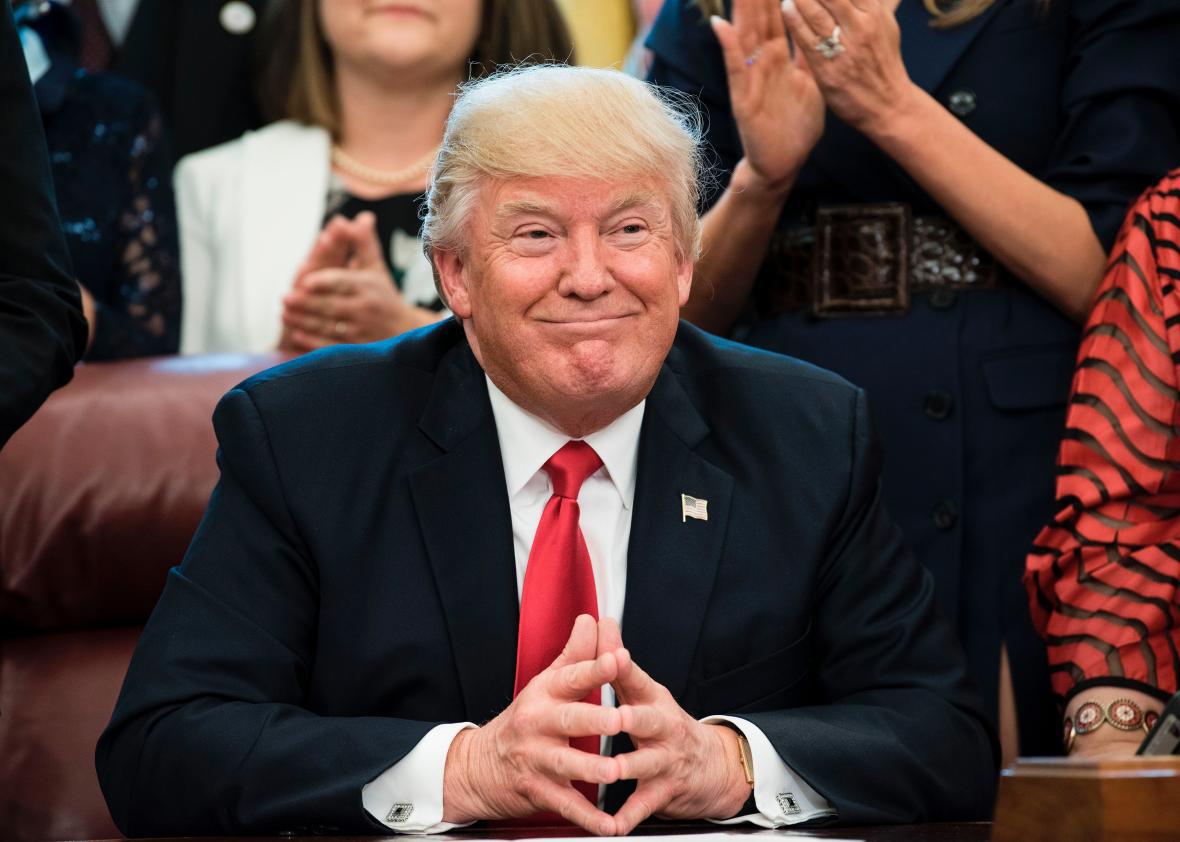The White House’s secretive approach to its handling of internal ethics has reached a farcical new place. The New York Times reported on Monday that the Trump administration is trying to indefinitely delay the Office of Government Ethics’ effort to force the White House to disclose any ethics waivers it has granted to the many former lobbyists now working in the administration:
… the White House, in a highly unusual move, sent a letter to Walter M. Shaub Jr., the head of the Office of Government Ethics, asking him to withdraw a request he had sent to every federal agency for copies of the waivers. In the letter, the administration challenged his legal authority to demand the information.
Dozens of former lobbyists and industry lawyers are working in the Trump administration, which has hired them at a much higher rate than the previous administration. Keeping the waivers confidential would make it impossible to know whether any such officials are violating federal ethics rules or have been given a pass to ignore them.
Trump signed an executive order in late January that barred lobbyists and lawyers hired as political appointees from working on “particular” government issues that involved former clients for two years. The president, however, reserved the right to issue a waiver to anyone he wanted—something President Obama did as well. But Obama automatically made any such decisions public, along with a detailed explanation of why they were made. Trump is doing all he can to keep the waivers he approves under wraps.
Shaub, who has been a thorn in Trump’s side since even before he took office, had set a June 1 deadline for the administration to turn over the documents. The OGE chief says he plans to make the waivers public if and when he gets his hands on them. “It is an extraordinary thing,” he told the Times about the requested delay. “I have never seen anything like it.”
The Trump administration’s argument for the delay is difficult to follow. In his letter to Shaub last Wednesday, Office of Management and Budget chief Mick Mulvaney asked for more time to address “legal questions regarding the scope of OGE’s authorities,” but never specified what those questions actually were. Then, in a statement provided to the Times on Sunday, OMB changed its tune to accuse Shaub of playing politics. “This request, in both its expansive scope and breathless timetable, demanded that we seek further legal guidance,” the statement read. “The very fact that this internal discussion was leaked implies that the data being sought is not being collected to satisfy our mutual high standard of ethics.”
OMB’s adjectival complaints about Shaub’s request don’t hold much water. The reason it is “expansive” is because it needs to be: Trump has hired countless industry lawyers and former lobbyists across his administration, many of which he has attempted to keep off the public’s radar. The reason the request is “breathless” is because it should be: Every day those waivers remain secret is a day the American public has no way of knowing whether Trump appointees are following the law or breaking it to advance their own financial interests. Meanwhile, OGE’s authority to ask for such information from ethics officers at individual federal agencies is quite clear—indeed, making such requests is among the agency’s chief oversight powers. (There might be an argument to be made that the White House is not technically a federal agency and therefore not subject to such oversight, but Trump is attempting to stop the process across the entire federal government, not simply the office of the executive.)
As long as the White House continues to stonewall OGE—and Congress continues to sit on the sidelines—it’s not clear exactly what else Shaub and his agency can do to acquire this critical information other than continue to cry foul in public. As I’ve explained before, in a normal, non-Trump world, if the agency were to run into trouble getting what it wanted from an individual agency, the office would then turn to the president for help. In Trump World, though, the president seems quite content to ignore any and all ethics rules he finds inconvenient.
Know anything about a potential conflicts of interest in the Trump administration? DM Josh Voorhees on Twitter or email him at josh.voorhees@slate.com.
